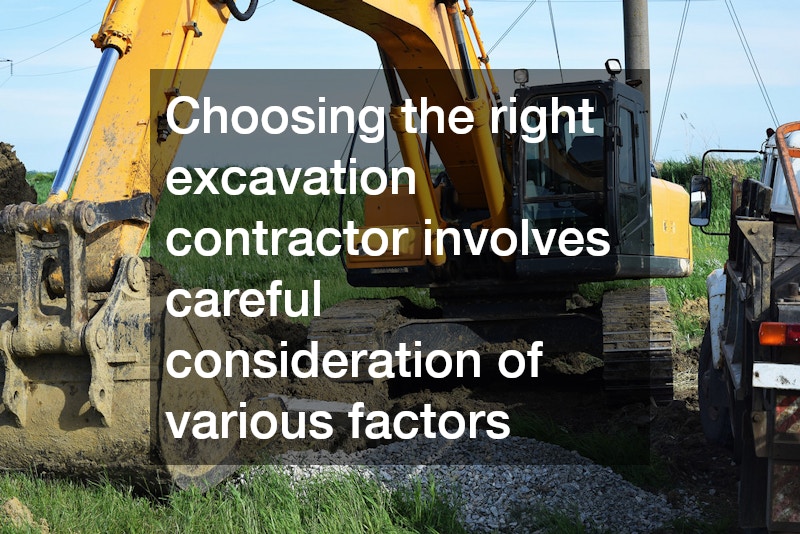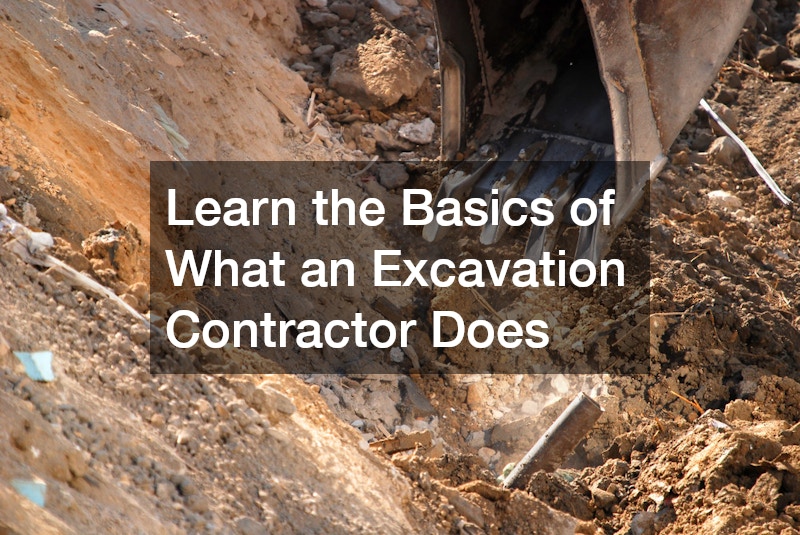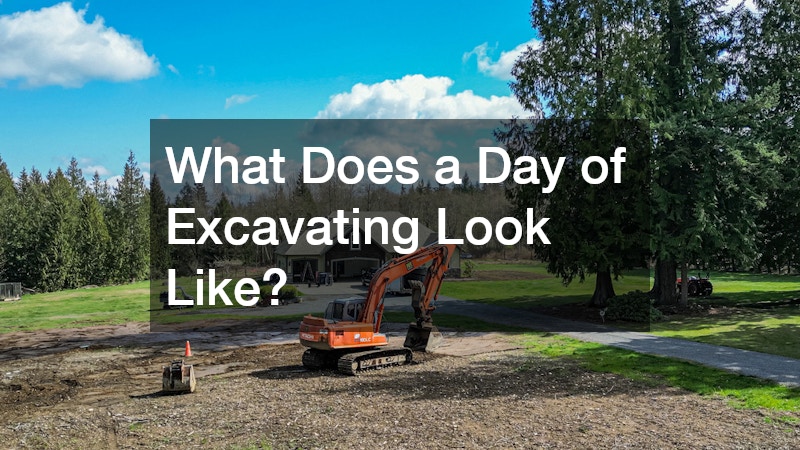Understand the essential role of an excavation contractor and their responsibilities, services, and significance in the construction industry. Excavation contractors are pivotal for a variety of projects ranging from residential homes to large infrastructure endeavors. Understanding their role not only helps in choosing the right service provider but also aids clients in anticipating the processes involved in excavation.
What Services Do Excavation Contractors Provide?
Excavation contractors offer various services that are foundational to the construction process. These services typically include site preparation, which involves clearing the land of any debris or vegetation to make it suitable for building. Grading is another crucial service that ensures the land is leveled correctly, allowing for proper drainage and foundation stability. Additionally, trenching is often performed to install utilities, drainage systems, or other underground elements necessary for a functional construction project.
Excavation work also encompasses the skilled movement of large amounts of earth and materials using heavy machinery. This requires not only machinery but also expertise in operating equipment like backhoes, bulldozers, and excavators. Knowing the right equipment to use for specific types of excavation tasks can significantly affect the efficiency and safety of a project. Furthermore, excavation contractors can assist with erosion control and other site-related challenges that ensure the integrity of the project over time.
Some excavation contractors also provide additional services such as rock removal, which is essential when a site has rocky terrain. Demolition services may be offered to remove existing structures before new construction begins. Importantly, these contractors are often involved in environmental assessments, ensuring that the excavation process adheres to regulatory standards and minimizes environmental impact. Overall, the suite of services provided by excavation contractors is extensive, making them indispensable in many construction projects.
How Do I Choose the Right Excavation Contractor?
Choosing the right excavation contractor involves careful consideration of various factors to ensure that your project proceeds smoothly. First, evaluating the contractor’s experience is crucial; seasoned contractors bring knowledge of common challenges and can offer practical solutions. Moreover, looking at their completed projects or obtaining references can provide insight into their capabilities and reliability. It’s essential to seek out contractors who specialize in projects similar to yours, as their expertise can lead to better outcomes.
Another significant aspect to consider is the equipment owned by the contractor. A firm with well-maintained, modern machinery is better equipped to handle various excavation tasks efficiently and safely. Additionally, it’s a good idea to inquire about their licensing and insurance, as this protects both you and the contractor in case of accidents or damages during the excavation process. A legitimate contractor will be more than willing to provide you with proof of proper licensing and insurance coverage.
Finally, reviews and testimonials can be invaluable when choosing an excavation contractor. Checking online platforms and asking for feedback from previous clients can shed light on the contractor’s professional demeanor, work ethic, and ability to communicate effectively. A contractor who is responsive and can clearly explain the process will likely lead to a more pleasant experience throughout your project. By thoroughly vetting potential contractors, you can make a more informed choice that aligns with your project goals.
What Should I Expect During the Excavation Process?
During the excavation process, there are several key elements that a client should expect. Initial site analysis is vital; this involves assessing the land to determine the best strategies for excavation while considering factors such as drainage, soil composition, and nearby structures. An excavation contractor will usually take detailed measurements and may conduct soil tests to identify any potential challenges that could arise during the project. This analysis sets the groundwork for an efficient operation and helps to foresee any issues that may emerge.
Once the site analysis is complete, machinery operation will commence. Excavators, bulldozers, and dump trucks are among the various types of equipment used, each serving a specific purpose during the excavation process. Contractors usually confirm that all equipment is in good condition and operated by skilled personnel before work begins. Proper operation of machinery is essential not only for efficiency but also for the safety of the site, making it paramount for contractors to emphasize training and adherence to safety protocols during this phase.
Throughout the excavation process, communication is key. Clients should expect regular updates from their contractors regarding progress, challenges encountered, and any necessary adjustments to plans. This line of communication helps build trust and ensures that the project stays aligned with the initial timelines and goals. Contractors should also provide clear explanations regarding any changes in the excavation plan, allowing clients to understand the project as it unfolds. An informed client is generally more satisfied with the finished result, as they can see the connection between the excavation work and the overall construction project.
What Are the Safety Measures in Excavation?
Safety measures in excavation are paramount due to the inherent risks associated with the work. Proper equipment is a fundamental safety measure, ensuring that all machinery meets safety standards and is regularly maintained. A well-equipped contractor will conduct pre-operation safety checks to identify any potential issues before work begins. Additionally, contractors are responsible for training their staff on the safe operation of equipment and emergency protocols, minimizing the risk of accidents during excavation.
Safety gear is another critical component of excavation work. Workers should always don personal protective equipment (PPE), including helmets, gloves, high-visibility vests, and steel-toed boots. This gear is designed to protect workers from various hazards, such as falling debris or trips and falls. Contractors must emphasize the use of safety equipment and ensure that all workers understand the importance of adherence to these safety standards to create a secure work environment.
Lastly, adherence to local regulations and safety standards plays a significant role in maintaining site safety during excavation. Many regions have specific guidelines that excavation contractors are required to follow to ensure the safety of workers and the public. These regulations can cover everything from below-ground utility markings to proper excavation depths. It is the contractor’s duty to familiarize themselves with these regulations and ensure compliance throughout the project to safeguard everyone involved.
Understanding the basics of what an excavation contractor does is crucial for making informed decisions and ensuring successful project completion. From the initial site analysis to the final grading of the landscape, excavation work is vital to almost every construction project. By gaining insights into the services provided, the selection process, and the intricacies of excavation work, clients can navigate the construction landscape with confidence. Proper communication and adherence to safety standards further bolster the success of these projects. Ultimately, a well-chosen excavation contractor can significantly impact the overall outcome of the construction endeavor.





